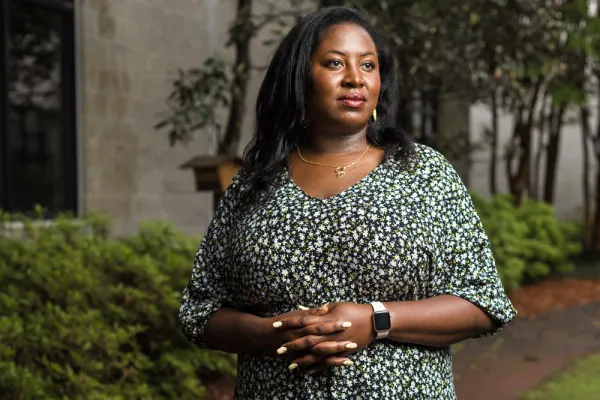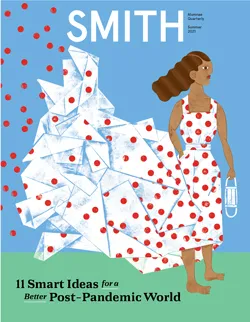‘We Need More Civic-Minded People to Step Up’
Alum News
Published July 7, 2021
The pandemic has not revealed anything that we don’t already know. There is sound research that shows the United States is at a significant point of resegregation that will continue to negatively impact the education of students from historically disadvantaged communities. This will lead to more systemic obstacles to economic and political equality and artistic, academic and entrepreneurial success.
It is time we all did something about it.
As a teacher, I believe education is a form of abolition and that community support of schools is essential. Good teachers, supportive parents, caring mentors and active community members can change the trajectory of a life. I know this firsthand. When I was growing up in Bessemer, Alabama, there were two people in particular—Dr. Henry Nelson, a parent, and Dr. Kim Crockard, a teacher—who did so much to ensure that I and other students like me had the resources we needed as we applied to colleges and for scholarships. They donated time and funds to help us. I met with them every Monday for two years at Jess Lanier High School. If it had not been for Dr. Crockard, I would have never discovered Smith College. She introduced me to Mrs. Mimi Tynes ’61, a founder of the Youth Leadership Forum of Birmingham, who traveled to Jess Lanier High School to interview me and ultimately wrote a recommendation in support of my application to Smith. Had it not been for their efforts, I would not be who I am today.
As we begin to consider life beyond the pandemic, we need more civic-minded people like Mrs. Tynes, Dr. Nelson and Dr. Crockard to step up and commit to mentoring youth and funding opportunities that will broaden access to academic and artistic opportunities. A recent report by McKinsey & Company, a global management consulting firm in Washington, D.C., found that students of color could see a loss of nearly a years’ worth of education compared to four to eight months among white students, denying many students from disadvantaged backgrounds a brighter future.
The time for change is now. Since I and many other Smith siblings have not been invited to sit at tables of power, I ask those of you who do have power to shift the parameters of high society to be as radically inclusive as possible. We are all the descendants of someone or something that we cannot change, but we can now plan a parenthood of progress and become the forbearers of inclusive communities around the world. To accomplish this, however, we need more Smithies to support arts programs, summer college tours, and civic engagement training programs. We need more Smithies to sponsor arts, and essay and oratorical contests. We need more Smithies to plant gardens and support libraries in the spirit of building more inclusive communities. And we need more Smithies to support legislation that will positively impact students from historically disadvantaged communities.
So herein lies my call to action to all of you: Whatever you do, find a way to make a way and be a consistent positive community member for all children.
Lisa Daniels ’12 teaches at The Altamont School in Birmingham, Alabama. She is working on a master’s degree in education policy and leadership at American University. When she’s not being a “Type A” busybody, she enjoys long walks in beautiful gardens.
This story appears in the Summer 2021 issue of the Smith Alumnae Quarterly.
Read More Smart Ideas for a Post-Pandemic World
Retail: Melissa Noonan ’96, ‘The Centers of Commerce Suddenly Shifted’
Nature: Simran Sethi ’92, ‘The Health of Our Population Depends on the Health of the World’
Health Care: Kimberly McGill ’01, ‘Systemic Racism Has Made This Pandemic the Crisis That It Is’
“Be as radically inclusive as possible,” says teacher Lisa Daniels ’12. Photograph by Lynsey Weatherspoon

